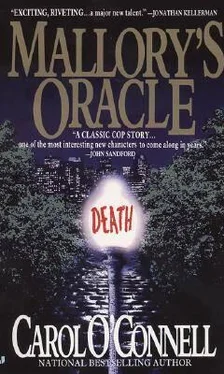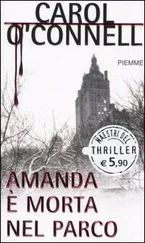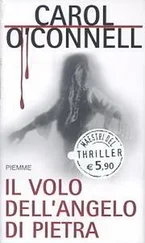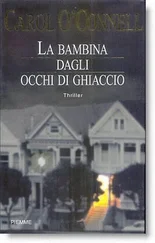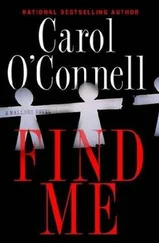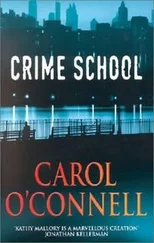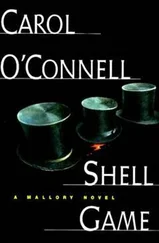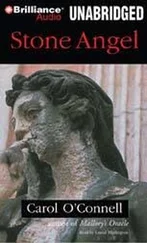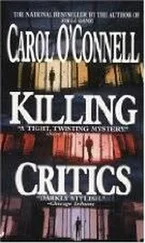Feet of red, and red rings around the bright mad eyes, he was otherwise coal-black until he passed into a dapple of sun, and iridescent flecks of green shimmered in the light. The feathers of his head were not smoothed back and rounded. Spiky they were, and dirty, as though a great fear had put them that way, and the fear had lasted such a long time, a season or more, and the dirt of no bathing or rain had pomaded them into stick-out fright, though the bird was long past fear now and all the way crazy. No fear of the human foot. A pedestrian waded through the flock, which parted for her in a wave, all but the crazy one, and it was kicked, startling the pedestrian more than the bird.
The woman shrieked and stiff-walked down Seventh Avenue. The insane pigeon followed after her, listing to one side with some damage from the kick, until he forgot his purpose.
***
Margot Siddon did not know how many hours she had gone without sleep. She followed the man down St Lukes Place heading towards Seventh Avenue under a slow-brightening sky. Streetlamps still glowed and cast her shadow slipping down into the underground. Fluorescent lights washed her face to white as she passed through the turnstile. The station was deserted at this hour, but for the two of them. To be sure of this, she walked the length of the platform, checking behind each thick post.
By all the laws that governed the universe and New York City, there should be a cop here at this moment when she least wanted to see one. Apparently, even this ancient rule had crumbled in the general breakdown of law and order. They were alone.
She walked toward him, only wanting to see his eyes one more time.
He turned when she touched his sleeve. As he shook off her dirty hand, the last sound he heard was the click. He was a good New Yorker, he knew what that sound must be, and he was given part of a second, that much time to be afraid, before she slipped eight inches of steel into his ribs. By his eyes, he was surprised to be falling, dying, with no time left to ask why.
***
Edith Candle woke in the ghosty gray hours before sunrise. Her bare feet touched to the carpet as she pulled a woollen robe around her shoulders and plotted out the day's schedule between her bed and the bathroom. She was drawing her bath water and had not yet looked into the kitchen. On the far wall of that room, just above the sink, a childish scrawl spread in a thick line of lipstick: THE PALADIN WILL DIE.
***
He approached the park with a small anxiety. More than thirty years had passed since he had last been here. To him it would always be a place of menace. All memories fashioned at the level of a child's eye were unreliable in scale, but Gramercy Park was otherwise unchanged. And so perfect was the memory of his sixth birthday party, Charles Butler winced.
Edith had invited all the children in the square to that party, all the children who'd had nothing to do with him on previous visits. And he made no new friends that afternoon, but had once or twice been the cause of uproarious laughter which made him want to sink into the earth, to be anywhere but there.
While Cousin Max had loomed over the children, making objects go up in flames and birds go up in flight, six-year-old Charles had shrunk as much as possible, scrunching down in his chair, aiming for invisibility. For the magic show's grand finale, Max had given Charles his fondest wish. First, he made the boy the center of attention, and then, mercifully, Max made him disappear, something which Charles's large nose had hitherto made impossible in any company of children.
After the show was over, Charles had reappeared against his will. The children with smaller noses and more modest brains had surrounded him and demanded to know how the trick was done. But he was honor-bound not to betray Max's secrets. In slow steps, and of one mind, the children were closing the ranks of small menacing bodies while Edith and Max were packing up the magic act and trundling boxes and bags through the gates, across the street and back into the house. He was alone in the circle of faces all filled with hate, small eyes bright with anger.
The first punch to his stomach put him into shock, so startling it was to be hurt for no reason he could understand. He covered his stomach to protect it from the next blow, and he was kicked from behind. An open hand shot out to slap his face, and he thwarted it with his raised arms. The same hand came back to him again as a fist in the side.
And now he understood them.
He dropped his hands to his sides and smiled at them, stretching his mouth to its widest, its looniest. They stood back half a step, still of one mind, and that mind was confused. What was this, asked their eyes which were one pair. In their base understanding of anger and fear, this smiling was against the rules. The tentative shot of a fist hit the back of Charles's head, but there was no real force to it. Their energy was draining off for lack of anything to feed it. There were no more blows before Edith entered the children's circle, put one hand on his shoulder and disappeared him back into the house.
During subsequent stays with Edith and Max, he had remained on the sidewalk side of the bars, where he stood now, looking in.
He opened the gate with Mallory's key and found himself a bench in a nice broad patch of October sun.
The boy at the gate must be Henry Cathery. Kathleen had supplied a more detailed description than Charles needed. The small traveler's chess set would have been sufficient to identify the boy. She hadn't needed to add the part about the visitor from another solar system. Charles, fellow alien, had a painful idea of what this boy's life must be like among the earth people.
He brought out his own traveler's set in the minutes while Cathery was settling into his own patch of sun. Charles's ancient wooden board was inlaid with squares of mahogany and cedar. The chess pieces were made of ivory and jade. The carving had surely driven the craftsman blind with the incredible detailing of each miniature. At the bases of the figures were the pegs to correspond with holes in the board.
From a distance of park benches, he noticed that Cathery was now sliding his own chess pieces across a metal board on magnets. Cathery's concentration made him impervious to the discomfort of being stared at. The boy was alone in his own universe, and Charles, a universe away, was not likely to catch his eye in anything approaching a natural encounter.
There was nothing in childhood which had prepared him for any pleasant encounter with a stranger. He had missed that stage of socialization which other people found so natural. He was not at all given to spontaneous conversation. Ah, but then, they were countrymen of sorts, this fellow Martian and he. He folded his set and walked slowly across that chasm which separates strangers and their very personal territory of park benches.
When he was standing over Cathery and blocking his sun, he said, "I see you favor magnets over pegs."
Cathery nodded, never taking his eyes from the board. If Charles had spoken from a burning bush, it would not have impressed Cathery sufficiently to break his concentration. Charles unfolded his own set and held it out between the boy and the metal board. Cathery looked at it and began the slow smile of a child within grabbing distance of candy.
Well that was better.
"I've seen one like that before," said Cathery, not looking up, eyes fixed on the board and its figurines. "It's a museum piece, isn't it?"
"Yes."
"Where could I get one?"
"You couldn't. There are only three of them, and two are in museums."
"You want to sell it? I don't care what it costs."
"No, I don't think so. Care for a game?"
Читать дальше
